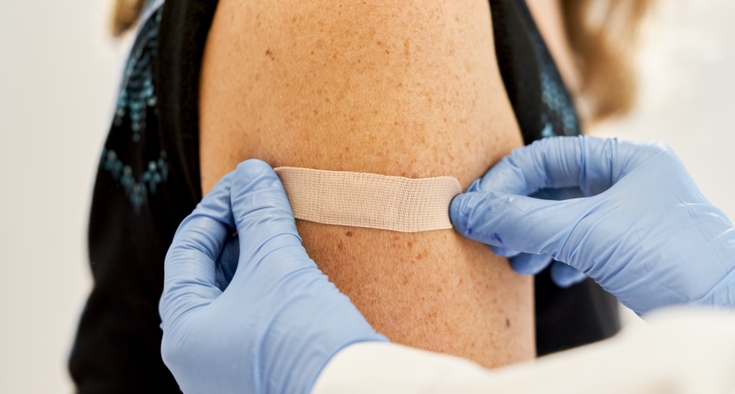Getting a flu vaccination is important to protect against the dangers of severe illness from the flu virus.

The flu can lead to serious complications. During the 2024-2025 flu season, an estimated 1.3 million people were hospitalized with complications from the illness, the Centers for Disease Control and Prevention reports.
Dr. Charles Bregier, Novant Health medical director of corporate health, answers FAQs about flu season below to help you and your family be prepared.
Why is getting a flu shot important?
Flu is very contagious and it can cause severe illness and complications. The flu is prevented very well most seasons by getting a flu vaccine. It can make your arm muscle a little sore, but local discomfort is all that people generally get. It can protect you from the flu, more importantly, it can protect family members from the flu. If you get the flu, and you bring it home and you have a family member who has underlying asthma, emphysema, heart disease, liver disease, kidney disease, any number of chronic conditions, they could get extremely ill.
You have flu shot options. Call a nearby clinic for an appointment.
Or walk into one of our urgent care clinics.
What's the best time for a flu shot?
October is a really good time. Certainly try to get it by end of October. If you get it early in September or in August, it may lose its effectiveness before the end of flu season. The flu vaccine is generally effective for about six months. Typically, flu season goes until March or April. We've had some years when it has gone into May. That is unusual, but it can happen. We don't know when flu season will peak.
Will getting a flu shot make me sick?
Flu vaccines are made from inactivated influenza viruses. They are dead particles. Because the vaccine is inactivated, it cannot make you sick.
People who say, “Oh gosh, five years ago, I got a flu shot. And three days later, I was sick with the flu.” That's really bad luck, because it wasn't the flu shot that made them sick. We are all out and about in a grocery store, in a barbershop, in Walmart or somewhere else, and one of those places is likely where that person was exposed to the flu.
Is the flu vaccination available in nasal spray? If so, is that an advantage?
That's still a bit of a controversial topic. Most of us think that it probably does not provide as high a degree of immunity or protection as an injection does. We are recommending people get the injection instead of the nasal spray. Where we do see that the nasal spray has more value is among small children who have needle phobias. For them, the nasal spray is likely better than nothing and should provide some protection.
If I get the flu, how can I feel better?
If you get a flu shot and then contract one of these strains of the flu that was part of the flu vaccine, you generally get less sick than someone who has not received the flu vaccine.
If you do get the flu, you need to take good care of yourself. Hydration is really important. Treat your fever with fever-reducing medicines. Acetaminophen (Tylenol, etc.) is generally the medication of choice. But for many people, ibuprofen might work better. Checking with your doctor is always a good idea.
You want to try to get a lot of rest and eat healthy. Get a little bit of exercise by walking around, but not too much. Don't push yourself too hard.
Most importantly, you want to try to keep your distance from other people within your home to try to keep them from getting the flu from you. If you can keep out of the kitchen, that's good. If you can use a separate bathroom, that's good. The flu is a mild-to-moderate illness from which the vast majority of people recover completely in three days to a week.
What age groups and type of patients are at higher risk for developing complications from the flu?
Anyone who has chronic medical problems like asthma, emphysema, heart disease, lung disease, immune-compromised conditions for whatever reason, or is taking medication that causes your immune system to be weakened, are at higher risk. Elderly people over 65 are at higher risk of more complications. Also, small children under age 5 are thought to be at higher risk. Additionally, pregnant women are somewhat at higher risk. It is universally recommended that all pregnant women, regardless of where you are in your pregnancy, should get a flu shot.
What other steps can you take to prevent getting the flu?
Keeping your hands away from your face, eyes, mouth and nose is always important. Keep hand sanitizer nearby and use it regularly. When you're out in public, put it on as you leave. Avoid touching things that are commonly touched. If you're coming in through a door, use your elbow to push the door open instead of touching it with your hand. If you're in a public restroom, and you're washing your hands, use a paper towel to turn off the hot and cold water faucets. Be very aware of your surroundings, of what you're doing and what you're touching.







